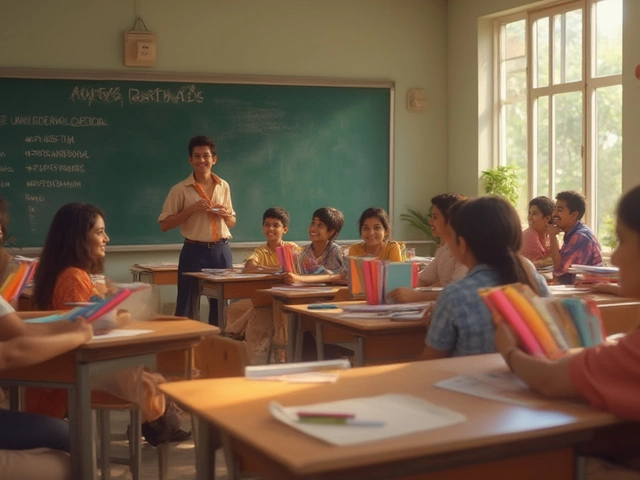Study CBSE Overseas: Options, Challenges & Pathways
When you study CBSE overseas, you are looking to follow the Central Board of Secondary Education curriculum while living outside India. Also known as CBSE abroad, this route lets you keep the familiar syllabus, grading system, and exam schedule even in a foreign setting. The CBSE Board, the authority that sets the curriculum for Indian schools works with International Schools, institutions that follow global standards but can host CBSE programs to deliver the same content worldwide. Meanwhile, Overseas Education, the broader ecosystem of studying outside your home country provides the framework for visas, scholarships, and accreditation. Together, these entities form the backbone of any plan to keep the Indian curriculum alive abroad.
Key considerations for CBSE students abroad
First, you need to match the CBSE syllabus with the host country’s school structure. Many international schools in the UK, UAE, Singapore, and the US run dedicated CBSE sections, allowing a seamless transition. If you join a school that offers both IB and CBSE, check how they schedule board exams; the CBSE timetable often clashes with local holidays, so you may need to request special arrangements. Admission processes differ: some schools require a placement test that mirrors the Indian board’s assessment style, while others accept previous report cards and a statement of intent. Visa regulations are another entity that directly impacts your study plan—most countries issue student visas that require proof of enrolment, financial stability, and sometimes a health certificate. You’ll also want to explore scholarship opportunities that specifically target Indian students, such as the Global India Scholarship or school‑based merit awards.
Curriculum adaptation is a big piece of the puzzle. While the core subjects—Math, Science, Social Studies, and English—stay the same, teaching methods might shift to more project‑based or inquiry‑driven approaches common in international schools. This can be an advantage, giving you exposure to varied learning styles while still covering the CBSE content. Assessment standards also blend; you’ll likely sit for the standard CBSE board exams in May‑June, but your school may add internal assessments that count toward final grades. Keep an eye on the grading scale conversion if you plan to apply to universities abroad, because many institutions compare CBSE marks with local grading systems. Cultural adjustment deserves its own spotlight—living overseas means navigating new social norms, dietary habits, and possibly language barriers. Yet, many Indian families find that the familiar CBSE routine provides a comforting anchor during this transition.
Finally, think about long‑term goals. If you aim for higher studies in India, staying on the CBSE track ensures eligibility for national entrance exams like IIT‑JEE or NEET without extra conversion steps. If your target is an overseas university, many schools offer dual pathways, allowing you to sit for both CBSE and international qualifications such as A‑Levels or the International Baccalaureate. This dual‑track approach can broaden your application options and boost your profile. Throughout this journey, stay connected with the CBSE Alumni Network and local Indian community groups; they often share insights on school selection, exam preparation, and even mentorship opportunities. All these pieces—curriculum alignment, visa handling, scholarship hunting, and cultural integration—combine to create a smooth road for anyone looking to study CBSE overseas.
Below you’ll find a curated collection of articles that dive deeper into each of these areas, from choosing the right international school to mastering board exam preparation while living abroad. Explore the guides to get actionable steps, real‑world examples, and expert tips that can help you turn the idea of studying CBSE overseas into a concrete plan.
CBSE Abroad: International CBSE Schools and Their Growing Global Presence
0 Comments
Wondering if you can study CBSE outside India? Here’s an in-depth look at the spread of CBSE schools abroad, where they exist, how they work, and what to expect as an expat parent or student.
Read More




